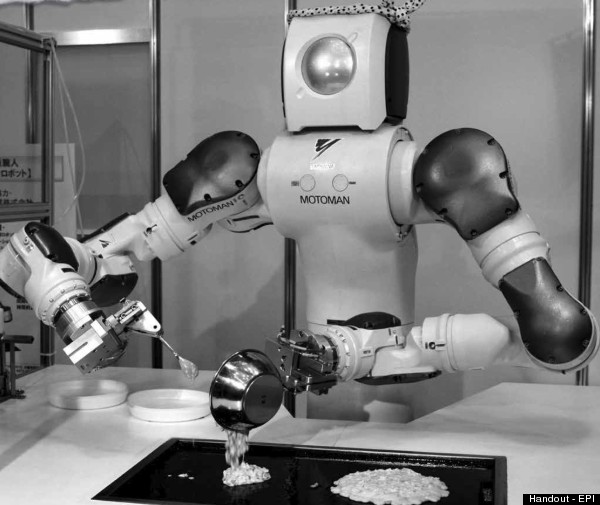Will robots steal your job?
In the last blog post we looked into how AI is creeping its way into your personal spaces via consumer electronics. In this post, we’ll instead be focusing on something a little bit more concerning: are robots going to take our jobs?
The fear of machines stealing jobs is centuries old. Textile factory workers in the North of England felt threatened by the introduction of machines into their workplaces during the Industrial Revolution. In the winter of 1811, these workers took matters into their own hands by sneaking into their factories and smashing up these machines with massive sledge hammers!
Two hundred years later, many still worry about the prospect of having their job stollen by robots.

It’s hard to think of an industry that hasn’t been drastically impacted by modern technology. From manufacturing to marketing and even banking, advances in robotics and AI have disrupted industries and displaced many workers already. New reports, unfortunately, suggest that things are only going to get worse. Oxford University researchers have predicted that 47% of total jobs in the US will be automated, with workers replaced by computers, by 2033. Things aren’t looking brighter on this side of the pond: 15 million jobs currently occupied by Britons are expected to be automated in the coming decades.
Societal implications
Donald Trump’s election to presidency this year has been largely attributed to disillusioned blue collar workers in America’s “rust belt” whose jobs were lost to workers overseas or to machines. It is disturbing then that his choice for Labour Secretary, Andrew Puzder, is an automation enthusiast. Speaking of automated customer services, he suggests that “they’re always polite, they always upsell, they never take a vacation, they never show up late, there’s never a slip-and-fall, or an age-, sex-, or race-discrimination case.” He arguably has a point, but his lack of consideration for the individuals and families that rely on his employment is alarming.
Blue collar work (routine-heavy processes) has been under threat by the rise of machines for some time, but experts are now predicting that white collar jobs (non-routine work) are also at risk as machines and AI become exponentially smarter.
Automation is “blind to the colour of your collar” suggests Jerry Kaplan, author of Humans Need Not Apply, a book that predicts the total upheaval of the labour market.
It is likely that as middle class, skilled jobs are hollowed out by computers, the wealth gap between the richest and the poorest will only grow larger. If this is the case, more civil unrest is highly probable and governments must act now to alleviate these worries and harness the potential benefits of automation or else risk the return of the Luddites.
What can we do!?
Worryingly, there doesn’t currently appear to be a simple solution to this very complex issue. One could perhaps try to future-proof oneself by taking on a job role least likely to be automated.
Teaching, nursing and (oddly) being a hotel manager are all jobs with less than a 1% chance of being taken over by robots. On the other hand, retail assistants, call centre workers, legal secretaries and administrators have over a 95% chance of losing their jobs to machines. Check out this fantastic tool by the BBC to see how safe your job is from automation.
The most alarming aspect of all of this new data is that hardly anyone is talking about it. Alongside global warming and a rising population, job automation is surely one of the biggest threats we face as a global society – more needs to be done to explore how we can, as a global people, adjust to this fourth Industrial Revolution. Unless those in power start seriously tackling these issues, I fear that workers may start reaching for their sledgehammers once more.